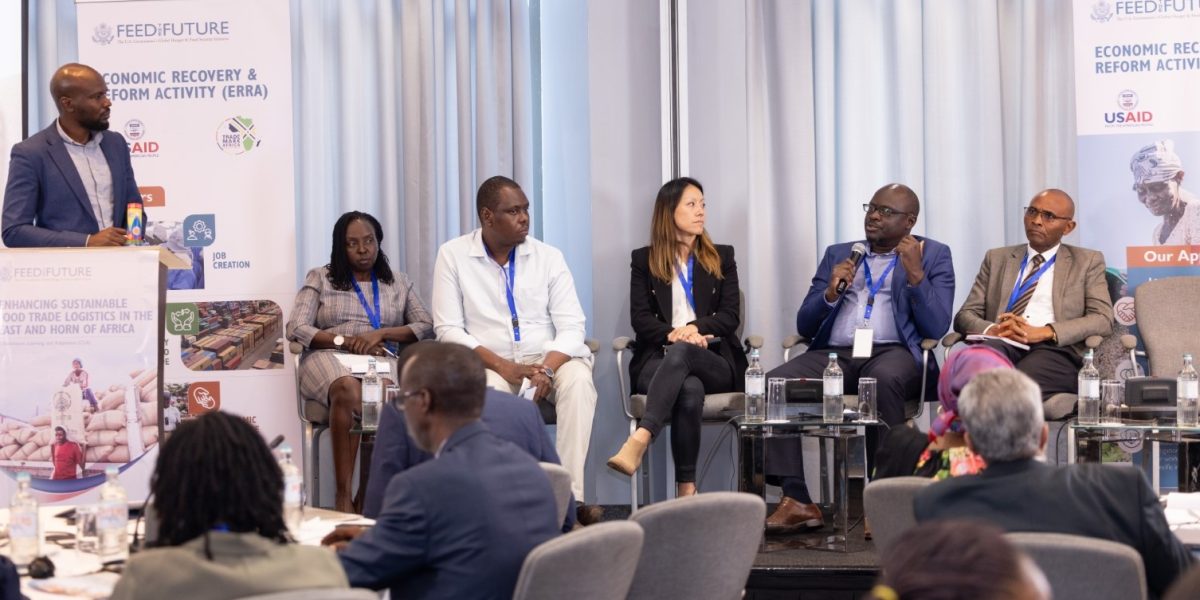Logistics involves a spectrum of activities, from aggregation and warehousing to transportation, delivery, distribution, and freight forwarding. Logistics services are a key enabler in driving trade and catalyzing economic growth by streamlining the movement of goods, storage, and clearance at borders. They are key in enhancing e-commerce and modernization when integrated with digital solutions.
Recognizing this pivotal role, USAID-ERRA, in collaboration with the Federation of East African Freight Forwarders Associations (FEAFFA), organized a two-day collaboration, learning, and adaptation (CLA) event from December 6-7, 2023. Over 100 delegates participated in this event from ten countries—Kenya, Uganda, Tanzania, South Sudan, Djibouti, the Democratic Republic of Congo, and Somaliland—including representatives from various sectors, such as transporters, freight forwarders, corridor authorities, transport and horticulture associations, World Food Programme, importers, and exporters as well as regulatory authorities.
This highly interactive event was content-rich, focusing on three key themes:
- Logistics Competitiveness: According to the World Bank’s Logistics Performance Index, logistics in this region is comparatively less competitive globally. Supporting this sector’s efficiency and cost-effectiveness is paramount in enhancing trade and economic growth. Some discussed solutions included digitalization and addressing empty backhauls.
- Sustainable Logistics: Historically dominated by males, the logistics sector has significantly contributed to CO2 emissions. Promoting inclusivity and greening are crucial in ensuring the sector’s sustainability. Innovative solutions, such as e-mobility and green freight logistics, were deliberated, with a particular focus on ways to target women and youth to participate in the sector.
- Agro-Logistics and Food Trade: Logistics is essential in linking farmers from surplus-producing countries to markets in food-deficit countries and facilitating humanitarian aid delivery. Emphasis was placed on structuring this trade to ensure quality and reduce waste.
Critical to advancing the outcomes of these discussions, there was a consensus on establishing a regional logistics platform that brings together stakeholders for collaborative efforts and implementing solutions through evidence-based advocacy. Participants agreed to set up a task force led by FEAFFA to develop the scope of work for the platform. USAID-ERRA will support the development and implementation of the platform.

